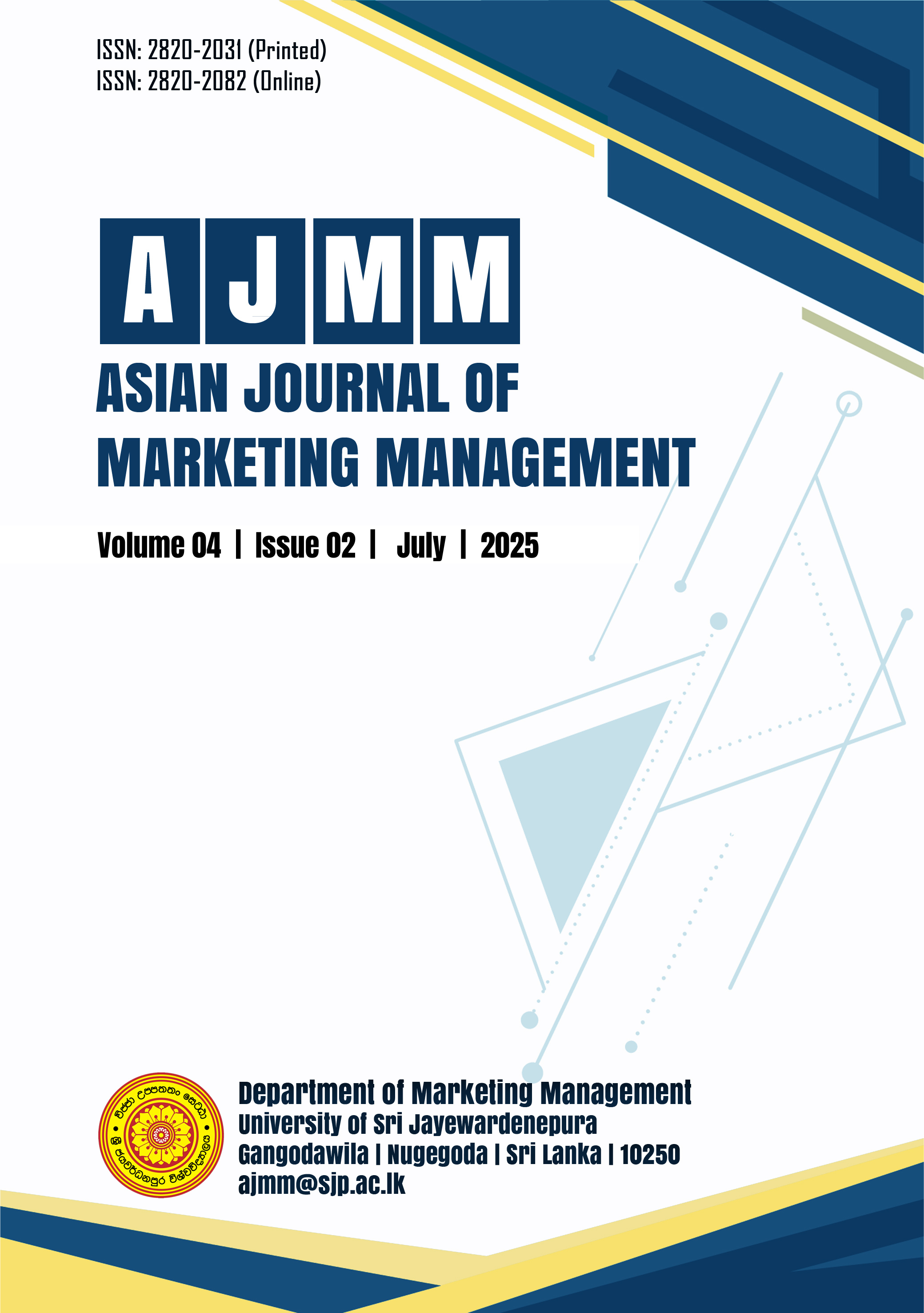Consumer Response to Sustainable Production Messages on Social Media: A Study in Sri Lanka’s FMCG Sector
DOI:
https://doi.org/10.31357/ajmm.v4i2.8029Keywords:
Attitude Towards Sustainability, Consumer Purchase Behaviour in FMCG in Sri Lanka, Knowledge of Using Social Media, Media System Dependency Theory, Sustainable Product DevelopmentAbstract
Purpose: The main objectives of this study are to investigate dependency on social media influences the relationship between consumer attitudes toward sustainable FMCG products, their knowledge of social media, and their subsequent purchasing behaviour.
Design/methodology/approach: A quantitative approach was adopted, using a structured questionnaire distributed to 426 respondents in Sri Lanka. Statistical methods, including regression and mediation analysis, were employed to evaluate the relationships between consumer attitudes, knowledge of social media, dependency on social media, and sustainable purchase behaviours.
Findings: The results reveal that dependency on social media is critical as both a direct influencer and a mediator. Positive consumer attitudes and advanced social media knowledge significantly correlate with higher dependency on social media, which in turn drives sustainable purchasing behaviour. Among these, dependency on social media demonstrated the strongest influence, highlighting the platform's role as a catalyst for sustainability-focused decision-making.
Originality: This study presents how Sri Lankan consumers respond to sustainable production messages shared on social media within the fast-moving consumer goods (FMCG) sector. While global research has explored sustainability communication in various markets, there is a noticeable gap in understanding its impact in the context of developing countries like Sri Lanka. This research uniquely addresses that gap by focusing on consumer attitudes and knowledge shaped by social media platforms in a culturally specific and under-researched environment.
Implications: This research provides practical insights for FMCG businesses, policymakers, and educators. Enhancing digital literacy and building trust in social media is important to improve consumer engagement with sustainability-related content. Policymakers should consider incorporating sustainability messaging into digital platforms, while businesses can utilize targeted social media campaigns to raise awareness and influence purchasing decisions.





